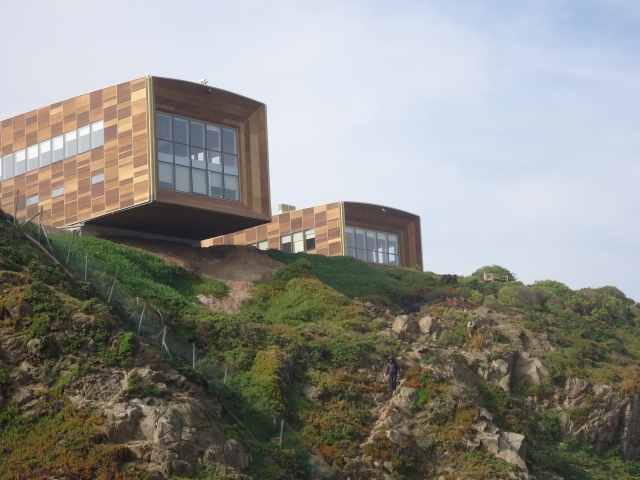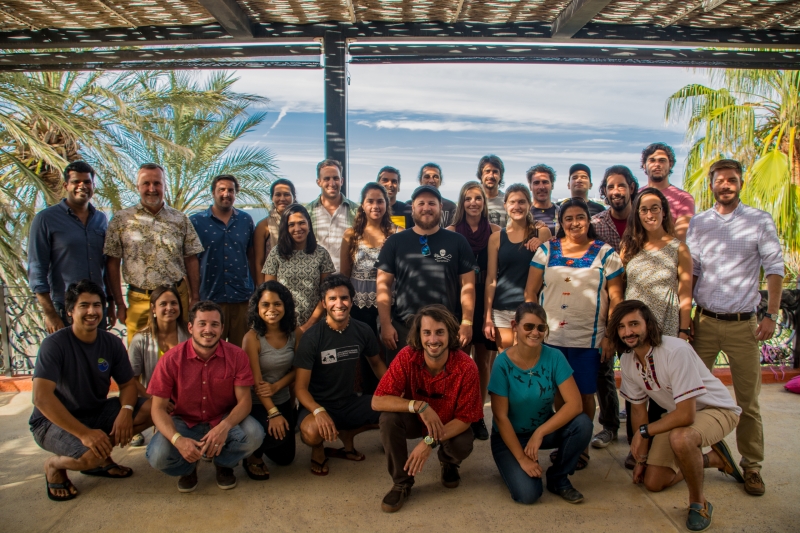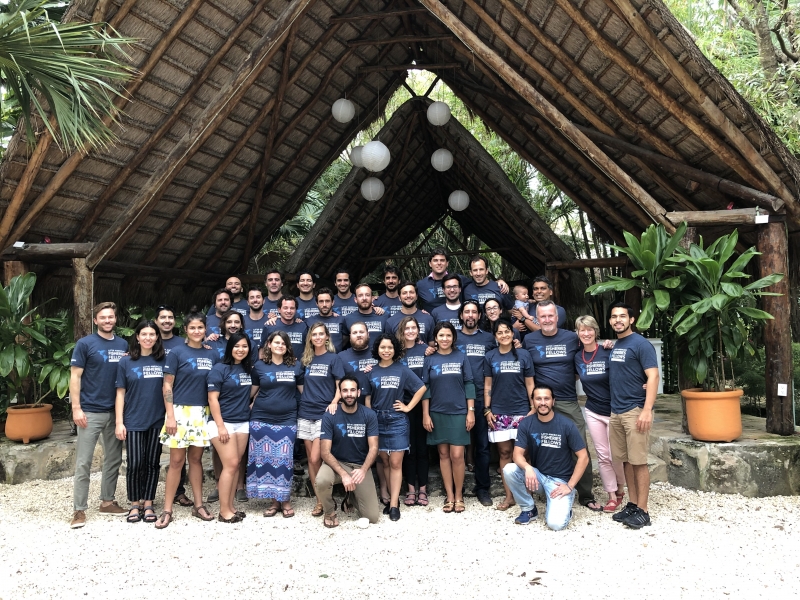
Emerging Fisheries Research & Management Tools for Latin America
El Mangle Community Campus
La Paz, Mexico
The 2014 Workshop took place January 15th - 21st at the El Mangle campus located in La Paz, Mexico. The 45 attendees included LAFF Fellows, alumni, faculty advisors, select prospective applicants, managers and heads of organizations working towards achieving sustainable marine resource management in Latin America. Alumni and current fellows took a lead role in facilitating the workshop, centered on multiple topics of interest to fellows—ranging from data-poor stock assessments tools to themes of aquaculture, ecological restoration, finance and seafood contribution to food security.






